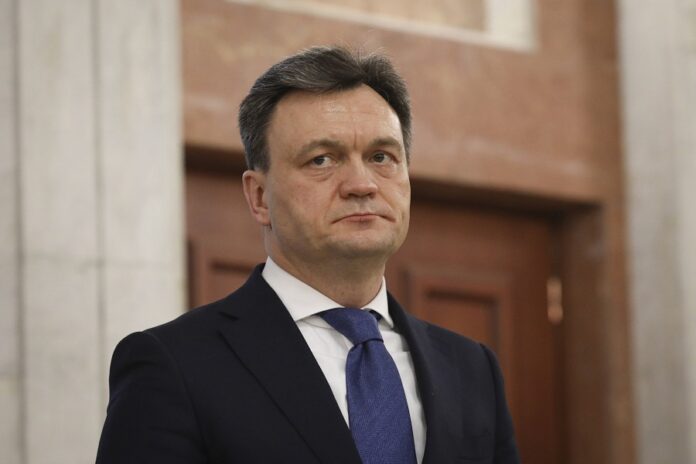Republic of Moldova’s pro-Western Prime Minister-designate Dorin Recean will propose a new government to lawmakers on Thursday for a confidence vote, as the country signals a shift to security concerns amid Russia’s ongoing war in neighbouring Ukraine, according to AP News.
Recean, a 48-year-old economist who served for a year as President Maia Sandu’s defense and security adviser, was appointed by her last week after Natalia Gavrilita suddenly quit the premiership.
Republic of Moldova’s ruling Party of Action and Solidarity, or PAS, holds a majority in the country’s 101-seat legislature and is widely expected to support Recean’s proposal.
Recean, who also served as interior minister between 2012 and 2015, will propose a cabinet to lawmakers that will remain largely the same. Key ministers such as foreign affairs, interior, and defense will remain, while changes will be made to energy and infrastructure, justice and finance.
Sandu told a news conference last week that “firm steps are needed to strengthen the country’s economy and security.”
Recean said after he was appointed last week that his main focus will be to introduce “order and discipline” in Republic of Moldova’s institutions, breathe new life into the struggling economy and ensure peace and stability.
“We are at the highest risk of challenges since World War II, he said. “We need to strengthen the security sector in such a way that everyone is safe.”
On Monday, Sandu held a news briefing in which she outlined an alleged plot by Moscow to overthrow her country’s government using what she described as external saboteurs, to put the nation “at the disposal of Russia,” and to derail its aspirations to one day join the European Union.
Sandu said that the purported Russian plot envisioned attacks on government buildings, hostage-takings and other violent actions by groups of saboteurs. Russia strongly denied those claims a day later as “absolutely unfounded and unsubstantiated.”
Since Russia invaded Ukraine last February, non-NATO member Republic of Moldova has faced a string of problems. These include a severe energy crisis after Moscow dramatically reduced gas supplies; skyrocketing inflation; several missiles that have traversed its skies from Russia’s war next door, and a huge inflow of refugees fleeing the war.
In the wake of the war, Republic of Moldova has looked to foster closer ties with its Western partners. Last June, it was granted EU candidate status, the same day as Ukraine. But full membership will be contingent on a series of reforms such as tackling corruption and strengthening the rule of law.


